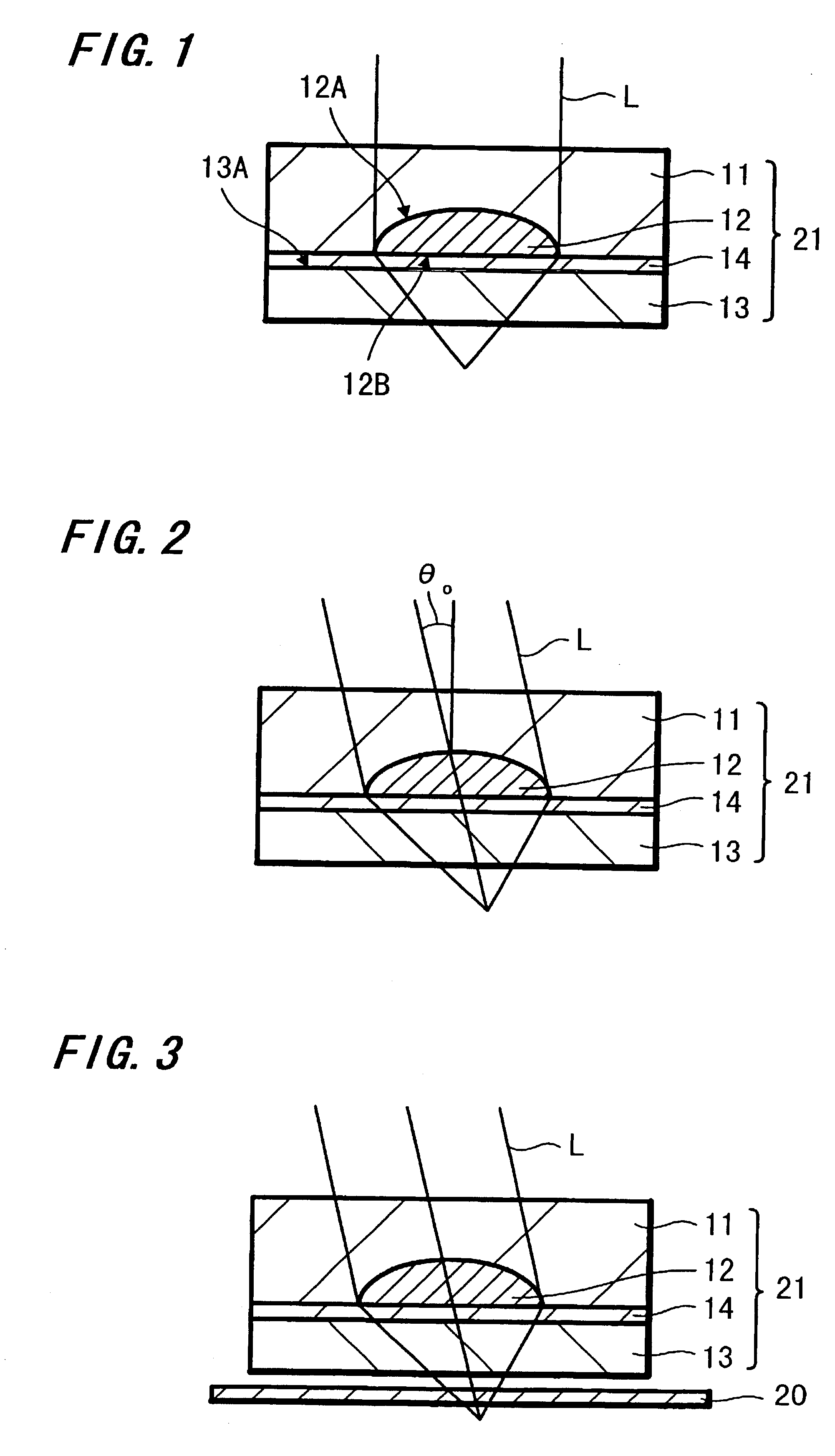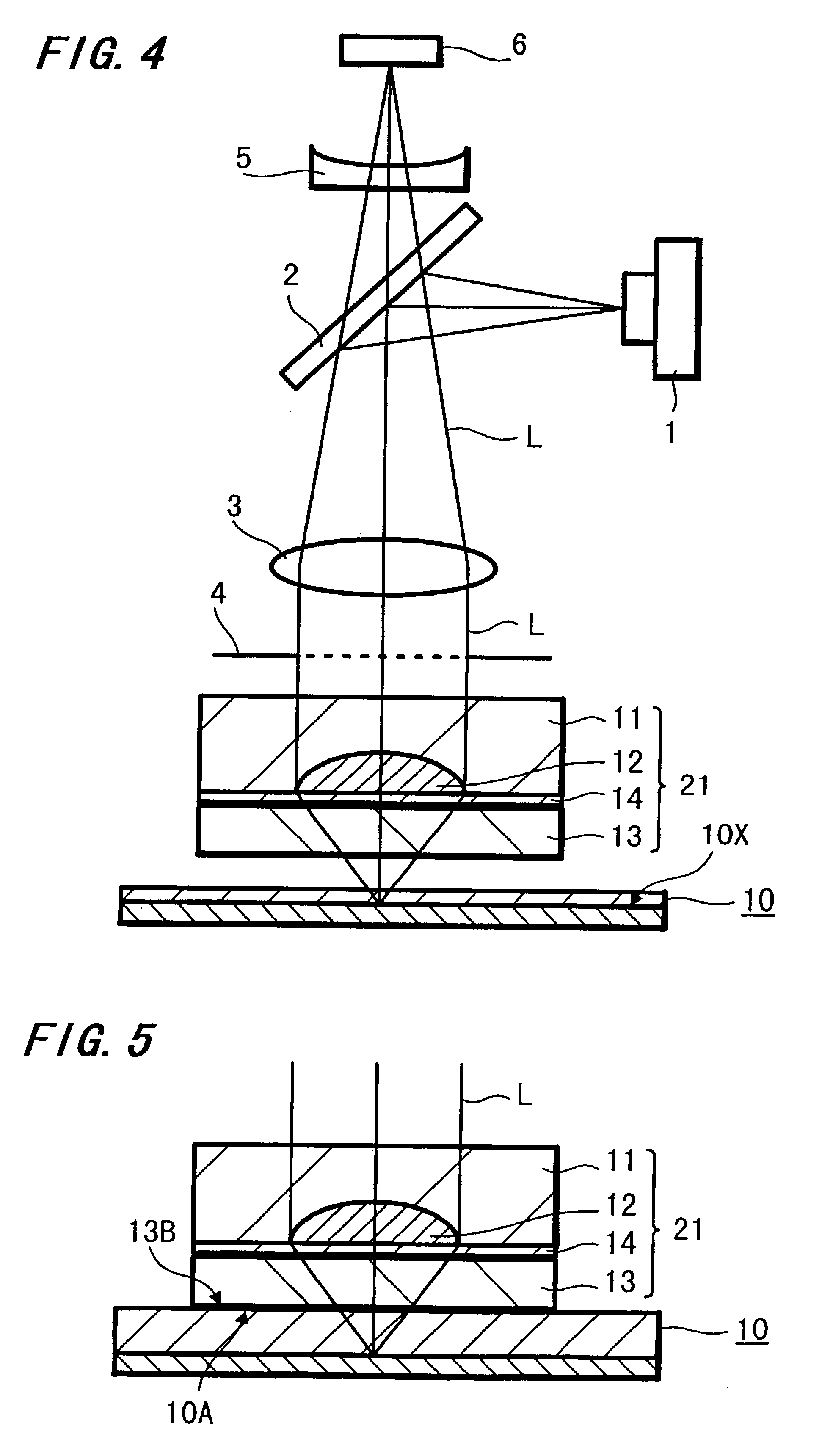Optical element and optical pickup
a technology applied in the field of optical elements and optical pickups, can solve the problems of difficult to increase the thickness of the lens from a technique standpoint, difficult to produce a mold for use in sheet forming, and difficult to make both surfaces of the lens aspherical surfaces, so as to reduce the comatic aberration
- Summary
- Abstract
- Description
- Claims
- Application Information
AI Technical Summary
Benefits of technology
Problems solved by technology
Method used
Image
Examples
example 1
DESIGN EXAMPLE 1
Specific design examples of the optical elements according to the present invention will be described below.
There is prepared an optical element 25. FIG. 9 is a schematic cross-sectional view showing an arrangement of such optical element 25.
Specifically, there is prepared the optical element 25 in which the lens 12 serving as the flat convex aspherical lens whose entrance end face 12A is formed as the aspherical surface and of which the exit end face 12B is shaped as the flat surface similarly to the optical element 21 shown in FIG. 1 is embedded into the lens base plate 11 and in which the aberration correction base plate 13 is attached to the lens base plate 11.
In this optical element 25, the aberration correction base plate 13 is formed thick as compared with the lens base plate 11.
An air layer 17 is located on the image point side of the aberration correction base plate 13 of this optical element 25.
First, the numerical aperture NA of the lens 12 of the optical ...
example 2
DESIGN EXAMPLE 2
There is prepared an optical element 26. FIG. 12 is a schematic cross-sectional view showing an arrangement of such optical element 26.
Specifically, there is prepared the optical element 26 in which the lens 12 serving as the flat convex aspherical lens whose entrance end face 12A is formed as the aspherical surface and of which the exit end face 12B is shaped as the flat surface similarly to the optical element 21 shown in FIG. 1 is embedded into the lens base plate 11 and in which the aberration correction base plate 13 is attached to the lens base plate 11.
In this optical element 26, the aberration correction base plate 13 is formed slightly thin as compared with the lens base plate 11.
This optical element 26 constructs the slider similarly to the arrangement shown in FIG. 5, and has the thin air layer 17 disposed between it and the image point side of the aberration correction base plate 13, i.e. an optical disk substrate 8 of the optical disk 10. In FIG. 12, ref...
PUM
| Property | Measurement | Unit |
|---|---|---|
| refractive index | aaaaa | aaaaa |
| transparent | aaaaa | aaaaa |
| thickness | aaaaa | aaaaa |
Abstract
Description
Claims
Application Information
 Login to View More
Login to View More - R&D
- Intellectual Property
- Life Sciences
- Materials
- Tech Scout
- Unparalleled Data Quality
- Higher Quality Content
- 60% Fewer Hallucinations
Browse by: Latest US Patents, China's latest patents, Technical Efficacy Thesaurus, Application Domain, Technology Topic, Popular Technical Reports.
© 2025 PatSnap. All rights reserved.Legal|Privacy policy|Modern Slavery Act Transparency Statement|Sitemap|About US| Contact US: help@patsnap.com



